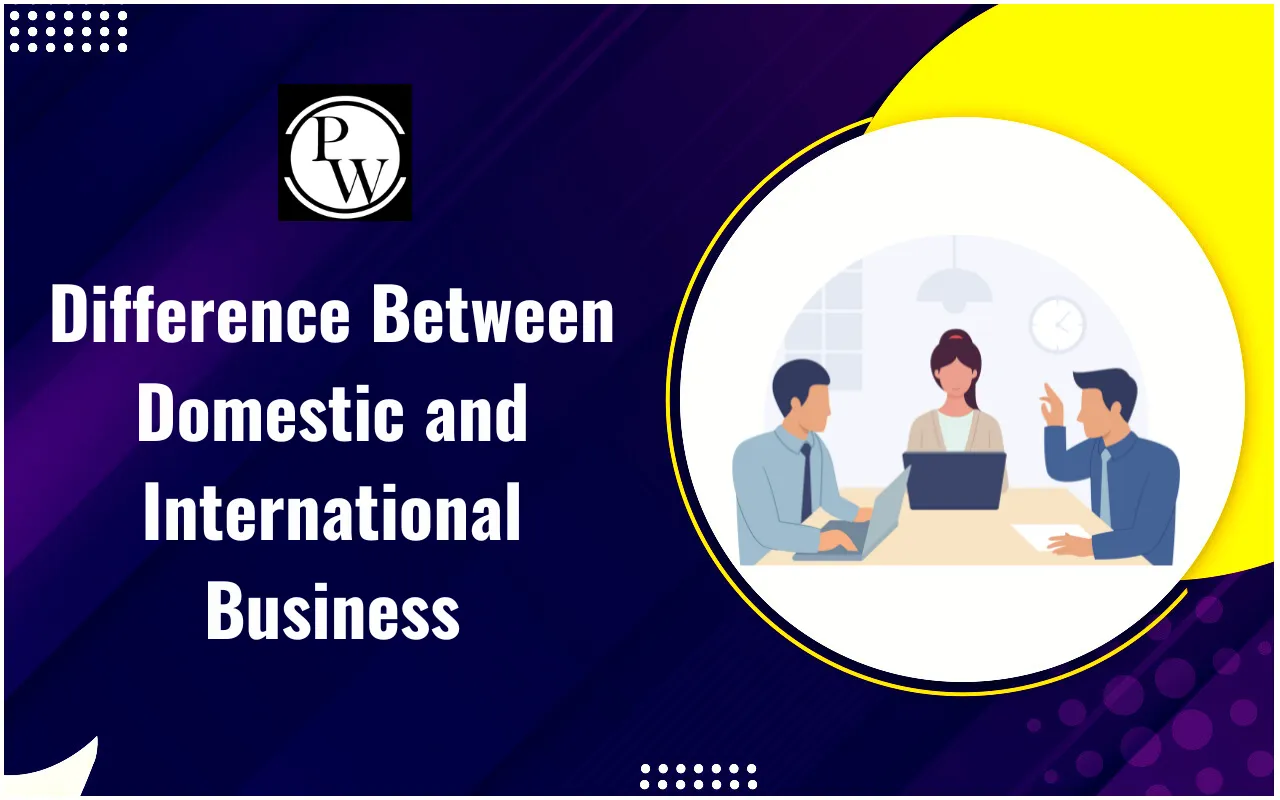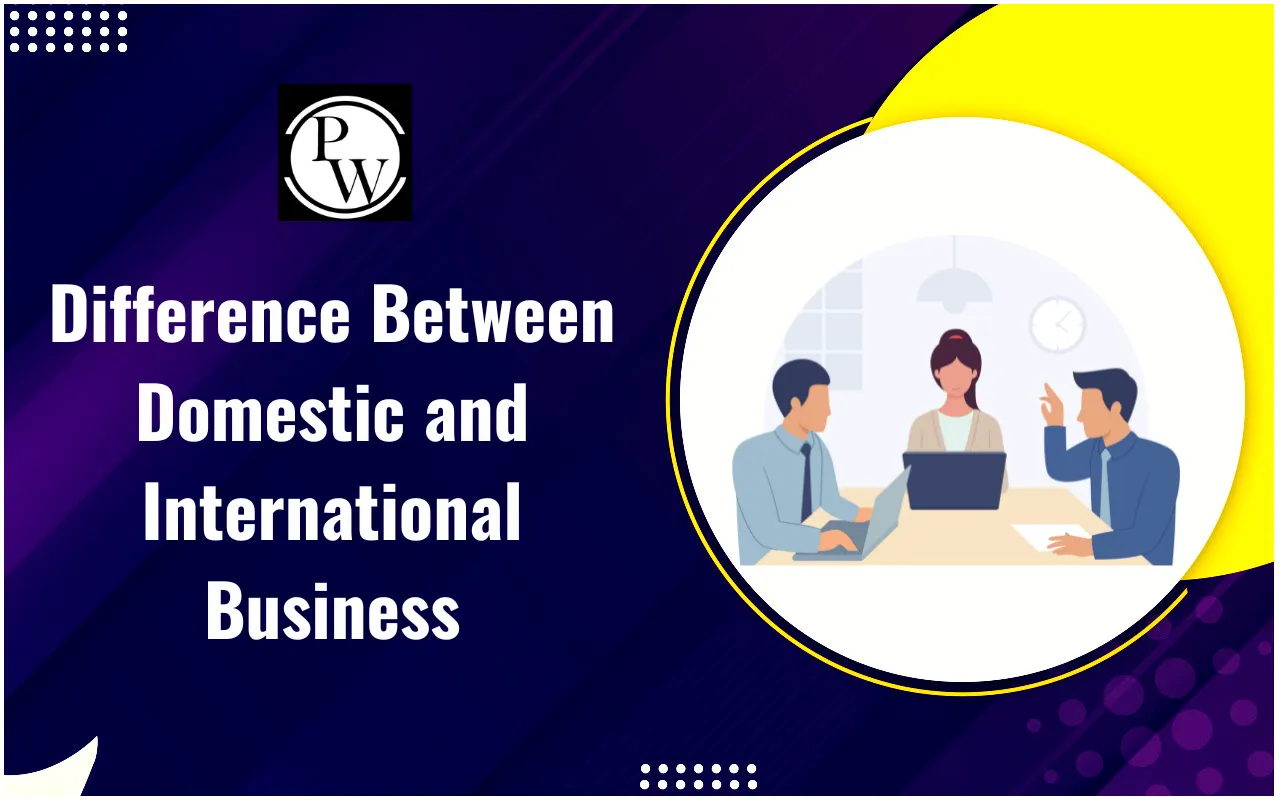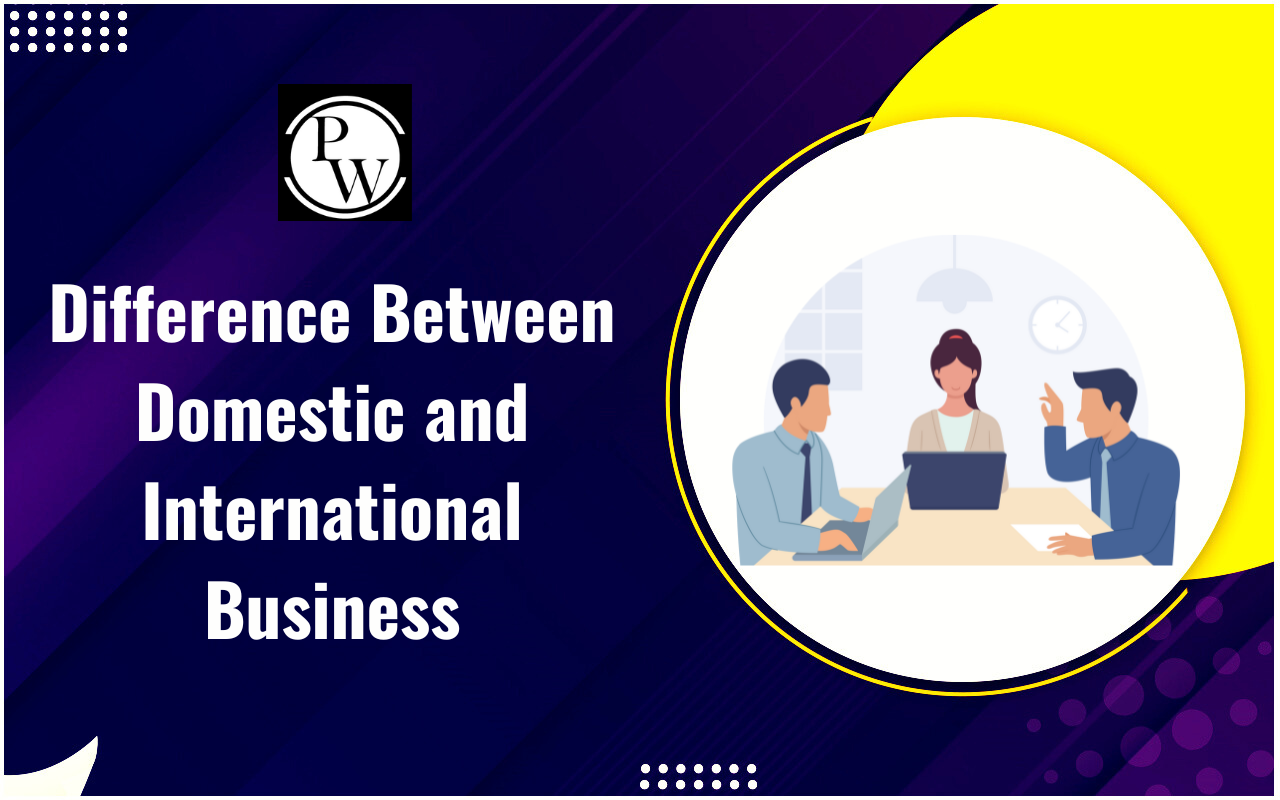

Difference Between Domestic and International Business: The business world is full of opportunities, and companies can choose to operate either within their own country or across international borders. When business is done inside one nation, it is called domestic business. When business is done across more than one nation, it is called international business. To understand how companies work in these two ways, it is important to learn the difference between domestic and international business.
Below, we’ve explained both types of businesses in simple terms. It also highlights their similarities, advantages, and challenges. By the end, students will clearly understand the difference between domestic and international business, which will help in know how companies grow in today’s world.
What is Domestic Business?
Domestic business refers to trade and economic activities that take place inside the geographical boundaries of a country. Both the buyer and seller belong to the same nation. Companies deal with the same currency, follow the same taxation laws, and serve customers who share similar preferences.
Domestic business is also known as “Internal Business” or “Home Trade.” It is easier to handle because the rules, laws, and customer expectations are more uniform. The risks are also lower compared to businesses that operate across many countries.
What is International Business?
International business involves trade and economic activities across different countries. In this case, the buyer and seller belong to different nations. Companies that work in this field are often called “Multinational” or “Transnational” companies.
International business is more challenging because the company has to deal with different currencies, diverse customer preferences, and varying taxation and legal systems. The risks are higher, but the chances of growth and expansion are also greater.
Difference Between Domestic and International Business
Below, we’ve mentioned a difference between Domestic and International Business:
| Difference Between Domestic and International Business | ||
| Basis | Domestic Business | International Business |
| Definition | Business activities within one country | Business activities across more than one country |
| Buyer and Seller | Both belong to the same nation | They belong to different nations |
| Currency | Uses the same national currency | Uses different currencies |
| Customers | Customers are more similar in needs and preferences | Customers are diverse and have different preferences |
| Geographical Boundaries | Limited by country borders | Not limited by borders |
| Business Research | Easier and less costly | More complex and costly |
| Capital Investment | Requires lower investment | Requires higher investment |
| Factors of Production | Greater mobility of resources | Lesser mobility of resources |
| Restrictions | Fewer government restrictions | More government restrictions |
| Quality Standards | Relatively lower standards | Higher standards required |
Similarities Between Domestic and International Business
Even though there is a clear difference between domestic and international business, there are also some similarities. Below, we’ve mentioned the similarities between domestic and international business:
| Similarities Between Domestic and International Business | |
| Basis | Similarity |
| Goal | Both aim to earn profit |
| Customers | Both need to satisfy customer needs |
| Activities | Both involve production, distribution, and sales |
| Marketing | Both need marketing strategies to reach customers |
| Growth | Both types contribute to company and economic growth |
Advantages of Domestic and International Business
Both domestic and international business provide benefits to companies and the economy. To understand better, below, we’ve mentioned the advantages of domestic and international business:
| Advantages of Domestic and International Business | ||
| Type | Advantage | Explanation |
| Domestic Business | Lower Risk | Since rules and customers are familiar, risks are lower |
| Easier Research | Business studies and planning are simpler | |
| Lesser Investment | Companies can start with smaller capital | |
| Better Understanding of Customers | Needs and preferences are easier to predict | |
| International Business | Wider Market | Companies can reach global customers |
| Higher Profit Potential | Selling across countries can bring more revenue | |
| Access to Global Resources | Firms can use raw materials and talent from many nations | |
| Brand Recognition | Companies gain a global reputation | |
Challenges of Domestic and International Business
Every business faces certain difficulties. Domestic and international business also have their own set of challenges.
| Challenges of Domestic and International Business | ||
| Type | Challenge | Explanation |
| Domestic Business | Limited Market | Growth is restricted to one country |
| Competition | Many local businesses compete in the same space | |
| Dependence on Local Economy | If the local economy slows, the business suffers | |
| International Business | Currency Exchange Issues | Different currencies make transactions complex |
| Political and Legal Risks | Different laws and government policies create problems | |
| Cultural Differences | Customers from different nations have diverse tastes | |
| Higher Costs | Research, transport, and regulations increase expenses | |
Which is Better, Domestic or International Business
The question of whether domestic or international business is better does not have one simple answer. Domestic business is safer, easier, and more predictable. International business, on the other hand, gives access to larger markets, more resources, and higher growth opportunities.
The real choice depends on the goals of the company. A small business may prefer domestic trade for stability. A large company with bigger goals may enter international markets for expansion. Thus, the difference between domestic and international business shows us that both are important in their own way.
The difference between domestic and international business highlights how companies work in different environments. Domestic business focuses on one country, while international business connects many nations. Each has its own rules, benefits, and challenges.
To survive and grow, many companies use both forms. They start at home and then move abroad. In today’s global world, knowing the difference between domestic and international business helps us understand how businesses shape our lives and the economy.
Difference between domestic and international business FAQs
What is the main difference between domestic and international business?
Why is domestic business easier than international business?
What makes international business more challenging?













